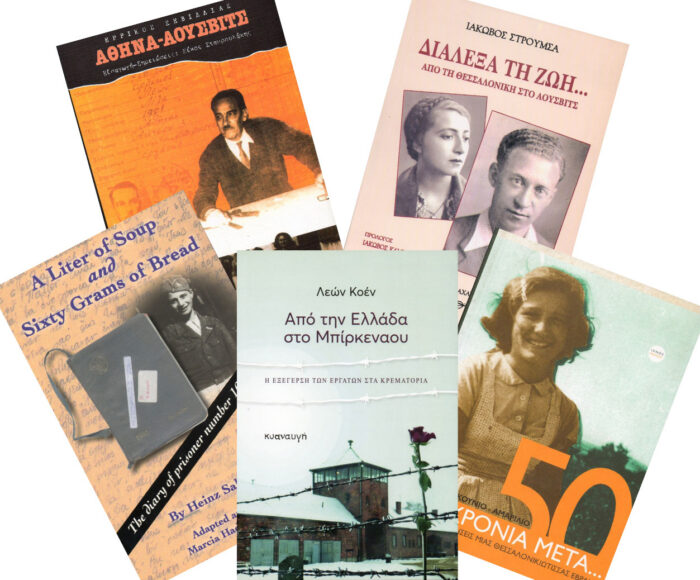Book Reviews Galore
For the fourth issue of last year’s Inconvenient History, a Greek revisionist submitted four papers, all of them reviews of various books, although one was a mere brief scrutiny of false claimed made by one author (Lawrence Rees). It was the very first time that we heard or rather read anything from Panagiotis Heliotis, a name utterly unfamiliar to us at that point.
If you think four reviews is a lot, brace yourself for impact. This issue features eight book reviews by him. Add two more reviews of Castle Hill’s most-recent book release on Rudolf Höss, and we’re already up to ten reviews! Can we fill an entire issue of Inconvenient History with reviews? It looks like we can. But should we?
Strictly speaking, the bulk of papers submitted by Panagiotis Heliotis aren’t reviews in the strict sense. Most of them analyze the accounts of Greek Auschwitz survivors, as published in various books, most of them autobiographic in nature. These analyses are limited to the aspects of the narrations conveyed which related to, confirm or contradict the orthodox extermination narrative of that camp. These papers are neither comprehensive analyses of the books containing the narratives, nor do they consider these books in their entirety as literary works.
Basically, we are dealing here with source criticism. The books contain anecdotal evidence of interest to the Holocaust narrative and its potential revision. Therefore, I have decided that they should not be regarded as book reviews, but as normal papers. They fill 40 pages of this issue. If more of this type of source criticism comes our way in the future, we will publish it as well, individually or in bulk. Source criticism, in particular the scrutiny of witness accounts, is at the very core of the revisionist method.
All anecdotes scrutinized here were written and published many decades after the claimed events, most of them during the 1980s and 1990s. As Panagiotis Heliotis shows, they are polluted with rumors and hearsay. I may add that they are moreover inevitably contaminated with what the witnesses have learned and internalized during decades of exposure to the largest propaganda campaign the world has ever seen. They have included lots of this third-party “knowledge” in their narrative not the least because of the expectations of a market that is interested at all in hearing the story of a Holocaust survivor that doesn’t contain stories of gas chambers, cremation furnaces, smoking and flame-belching chimneys, blazing funeral pyres, etc. Real stories limited to what survivors really and personally experienced would never find a publisher. Hence, if they were ever written, they would never get published. Not even we revisionists would publish them, because with our limited resources and constant struggle for financial survival, there are no funds left to be squandered for such an endeavor for which there is no demand.
That’s why the real, rather boring stories don’t exist in print. No one would be interested in reading them. The propaganda feeds itself in a closed feedback loop of self-confirmation. What Panagiotis Heliotis lays bare in this issue are some of the exudations of this self-referential feedback loop, producing predictably cliché-driven results that are utterly worthless from a historiographic point of view.
By the way, the German term for exudation is Ausschwitzung. Any similarity with Auschwitz is purely coincidental.

Bibliographic information about this document: Inconvenient History, Vol. 10, No. 1 (winter 2018)
Other contributors to this document:
Editor’s comments:
